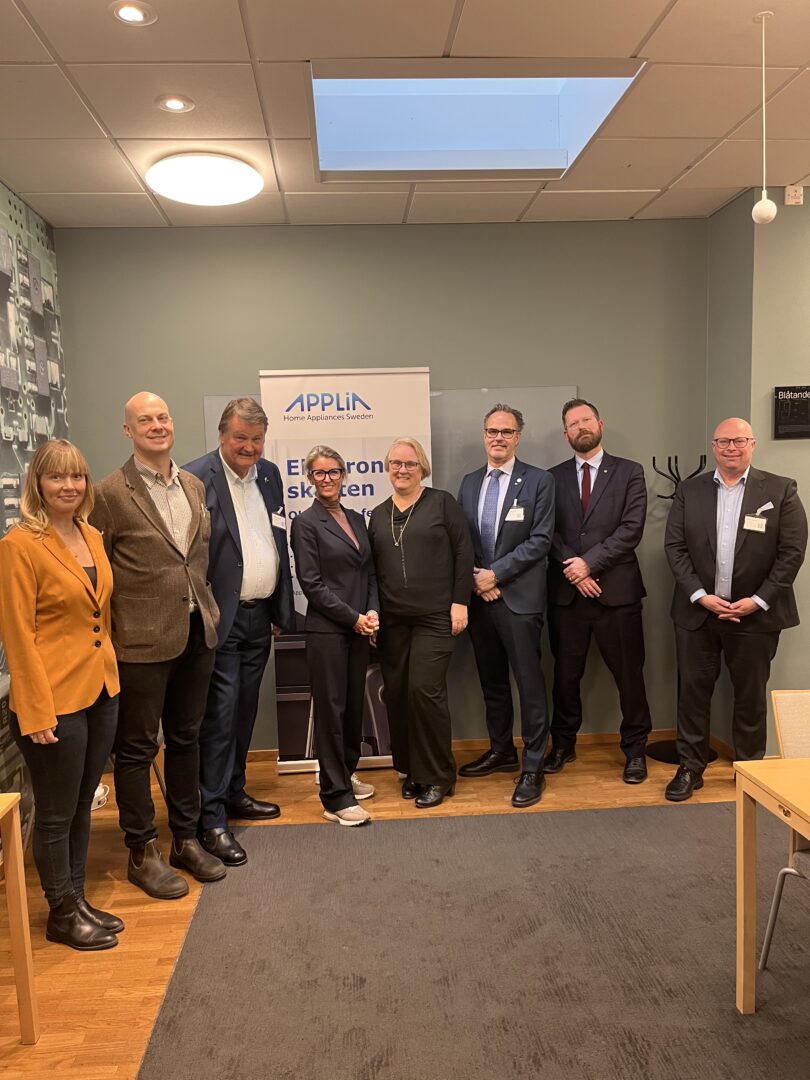
2025.10.31
Roundtable discussion on the electronics tax
October's roundtable discussion on the electronics tax was held at the end of October at APPLiA with the participation of politicians and industry representatives.
– "We are pleased to be able to bring together participants from both industry organizations, companies and politicians to discuss the unsustainable electronics tax. The goal is to discuss how we can work together to abolish the electronics tax and instead push for solutions that truly reduce the use of unsafe substances in electronics flame retardants," commented Kent Oderud, chairman of APPLiA, about the focus of the meeting.
Heavily criticized tax
The electronics tax has been subjected to harsh criticism since its introduction in 2017, both from the trade, researchers, white goods and home electronics companies and from the state's own authorities such as the Swedish Tax Agency, the Swedish Customs Agency and the Swedish Chemicals Agency. Motions from several party representatives regarding an investigation into the abolition of the electronics tax are also constantly recurring in the Swedish Parliament, as it does not meet its original objective of reducing the occurrence of unsafe flame retardants in the home environment.
Wide participation
From the Riksdag and politics, Eric Westroth (SD), Marléne Kopparklint (M), Helena Dyrssen (Government Office) and Mathias Tegnér (S) participated. From the industries, Annika Kühner (Electrolux), Frida Faxborn (TechSverige), Per Strömbäck (Computer Games Industry), Pernilla Enebrink (Electronics Industry), Sten Lindgren (Small Business Association) and Kent Oderud (APPLiA) participated. Theodor Paues (Paues Åberg Communications) acted as moderator for the meeting.
Criticism of the tax
There was a great deal of consensus around the table about the tax's shortcomings and the need for change was considered to be great. The biggest obstacle to abolition is now that the tax has grown significantly in value (doubled since its introduction) and thus in importance for the state budget. The 2.5 billion that the tax now brings in annually from Swedish consumers is welcomed by the Ministry of Finance as long as there is no major social uprising in the streets and squares for abolition.
